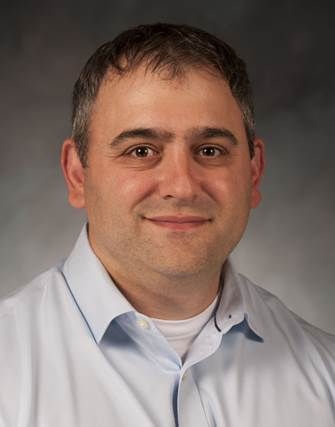
Date:
Location:
Title:
abstract
Material properties are governed by the chemical composition and spatial arrangement of constituent elements at multiple length-scales. This fundamentally limits material properties with respect to each other creating trade-offs when selecting materials for specific applications. For example, strength and density are inherently linked so that, in general, the more dense the material, the stronger it is in bulk form. We are combining advanced microstructural design, using flexure and screw theory as well as topology optimization, with advanced additive micro- and nanomanufacturing techniques to create new material systems with previously unachievable property combinations – mechanical metamaterials. The performance of these materials is fundamentally controlled by geometry at multiple length-scales rather than chemical composition alone. We have demonstrated designer properties of these mechanical metamaterials in polymers, metals, ceramics and combinations thereof. Properties include ultra-stiff lightweight materials, negative stiffness, and negative thermal expansion. Our additive micro-manufacturing techniques include Projection Microstereolithography (PSL), Direct Ink Writing (DIW), and Electrophoretic Deposition (EPD) as well as some new advanced concepts such as holographic lithography. These tools are capable of generating the designed structures which are highly three-dimensional micro- and nano-scale architectures with multiple constituent materials in the same structure.
bio
Dr. Christopher M. Spadaccini received his S.B., S.M., and Ph.D. degrees from the Department of Aeronautics and Astronautics at the Massachusetts Institute of Technology in 1997, 1999, and 2004 respectively. His graduate work consisted of the study of micro-scale combustion phenomena as well as the design, fabrication, characterization, and modeling of combustors for micro-scale heat engines. He joined LLNL as a staff engineer in the Center for Micro and Nanotechnology in 2004 where he worked on a variety of projects ranging from explosives detection and biodefense to CO2 capture and sequestration.
Dr. Spadaccini is currently the principal investigator of several advanced materials and additive manufacturing projects at LLNL. He is also the founder and director of a new additive manufacturing and process development center in the Engineering Directorate and is the Director of Additive Manufacturing Initiatives at LLNL. Work in these laboratories focuses on developing next generation additive processes that are capable of micro- and nano-scale features and have the ability to create components with mixtures of materials ranging from polymers to metals and ceramics. Development of these processes also involves the synthesis and materials science of feed-stocks such as photopolymers and nanoparticles. These capabilities are utilized to fabricate microarchitected materials with unique designer properties such as negative thermal expansion or ultra-light weight materials with high stiffness and strength.
In addition, Dr. Spadaccini has been active in the academic community and has authored over five dozen journal and conference publications, three book chapters, has multiple patents awarded and is on the editorial board for several journals and websites. He is also a part-time lecturer at the San Jose State University in the Biomedical, Chemical and Materials Engineering Department where he teaches graduate courses in advanced transport phenomena.
Hosted by Frank Zok. Pizza served at noon. Download event flyer.



